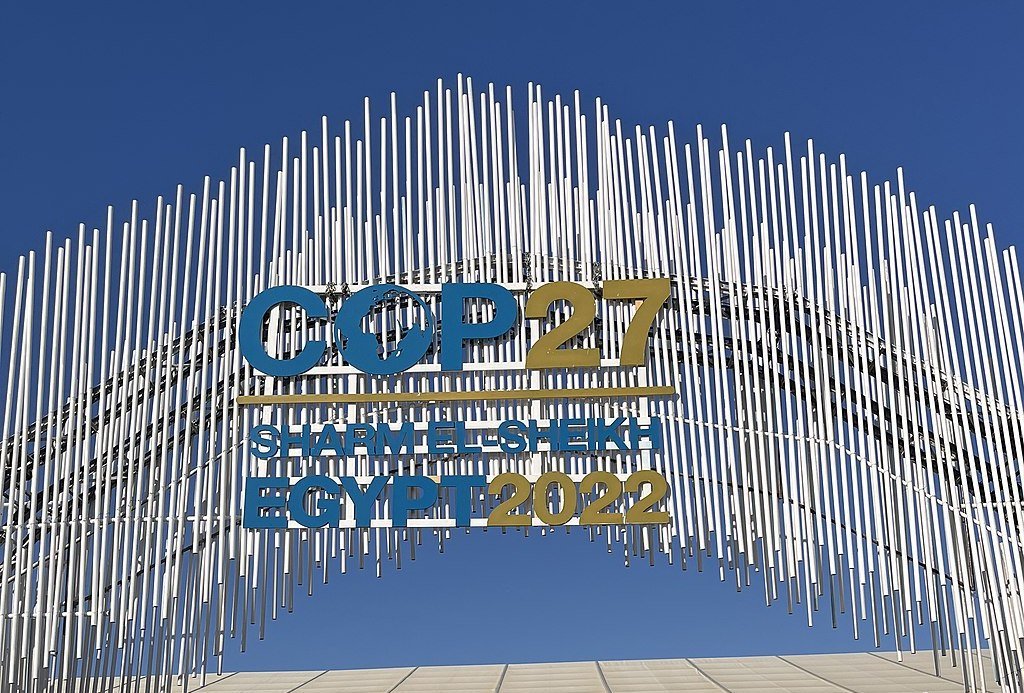Oxford University has recently published a study, according to which conspiracy videos on YouTube on the Covid-19 pandemic were watched by more viewers than the audiences of the five most popular TV channels in the USA. This information is causing concern in the circles that deal professionally with disinformation. In the following article I will analyse a number of interesting aspects of the fake news problem and the theory of media.
Netflix has recently produced a documentary which presents the opinions of a number of important figures in the digital technology industry: the engineer, who invented the “like” button, the IT professional who created the algorithm through which YouTube recommends new videos to us, the director of the department for ethical design at Google, important players on the investment market in digital technology, and activists. At the end, the programme features individuals who have held extremely important positions at the top of the managerial hierarchies of the digital giants: Google, YouTube, Instagram, Facebook. Interestingly, all of them have already left those positions and are very careful about what they say, because of their confidentiality contracts.
I will try to analyse some takeaways from the documentary, without spoiling your enjoyment in watching it.
I will start my story in an unexpected place. When I was admitted to the Faculty of Journalism and Communication Sciences in Bucharest many years ago, the atmosphere on the effects of mass media was a very liberal one. The media existed to make money, not to raise the public’s level of education or culture. It was believed that there was no direct causality between exposure to a message and behaviour. The hegemonic paradigm (Gramsci, the Frankfurt School) was simultaneously simplistic and elitist. It looked at media in a unitary way and viewed the public as an amorphous mass. The dean of the faculty and the professor of the Introduction to Mass Media course both felt sadistic pleasure when they were telling us that we had come there in order to write for a mediocre public and that we had to write with clarity, leaving behind idealism and elevated words. The latter could have worked in literature, but not in journalism. This was considered to be useful advice at that time.
It is clear that a large part of the criticism of consumer society is undermined by a simple idea: the effects of media are difficult to identify and quantify. So we have to be satisfied with the TV channels and the newspapers which we have.
It is interesting that some of the liberal theoreticians always go along this line, when pornography, the violence in computer games, the prime time news or the commercials for adolescents have to be discussed. It is supposed that we are rational adults, capable of deciding for ourselves and the attempts at regulation could transform into a perilous and infantilising “uncle”, who is meant to protect us from ourselves.
Today we face this very same problem: does exposure to media messages influence us? How can we know how much?
There is a real hysteria around our exposure to digital disinformation, or fake news. It obliges us to reconsider the possible answers to these questions. We have three options:
- To go along the lines of liberalism: the individual is autonomous – a rational egoist who has the power to tell truth from lie. Exposure to digital disinformation does not influence us. We don’t need regulation and state intervention so that the state stands between us and the social networks.
- The second option is that the liberal perspective is no longer valid and cannot answer these questions because we have a completely new form of propaganda that runs through the new media channels;
- In fact we have been subject to media influence all the time, but according to the remarkable studies of George Gerbner on mass media, previously it was in the elites’ interest not to have regulation. Liberal theories downplayed the influence of exposure to media messages in order to avoid regulation and this served the political elites. That is how the whole critical potential of media was reduced to authoritarian instincts that aim to take away from good citizens the right to choose for ourselves. A convenient discourse.
In the following article, I will try to analyse these options from the standpoint of the recently broadcast Netflix documentary, The Social Dilemma.
Curiously, the whole ethical panic created by fake news seems to have erased the decades when we were left to think that we are autonomous individuals, with the ability to make a judgement about truth, who don’t need any media regulation at all! Only we – the rational people – decide and choose. Our preferences would lead to quality journalism – this is what was thought. But even before the appearance of social networks, serious doubts about this perspective began to appear. First of all, it is based on the idea of a rational individual, whose choices are a pure expression of his desires! I can’t help mentioning here the famous statement of Stuart Ewen, the author and consumerism expert who, referring to the birth of the consumer society, said that not people, but their desires were controlling it. And that is a bit different than the original belief.
It is clear that the liberal theories on media effects are derived from a simplistic essentialist perspective, that the world is formed by different objects with different characteristics and people are not exceptions to this. How did society appear, one could ask. As if these individuals were floating somewhere in an amorphous substance and suddenly decided for unknown reasons to form this society.
No matter how much criticism it provoked, this paradigm dominated the views of media researchers. The sovereignty of choices and individual decisions remained for a long time completely unquestioned in a media landscape which feared regulation.
I am amazed that this perspective has been undergoing significant change in recent times. I was present at a conference on digital disinformation, where there was a lot of talk on regulation, on the protection of democracies from the malicious intentions of countries such as Russia and China. What happened to the sovereign individuals, with their capacity to defend themselves without regulation? In just a few years we passed from one extreme to the other with regard to individuals’ supposed capacity to protect themselves from propaganda.
What the Netflix documentary shows us through the voices of influential people – managers, engineers of the big digital companies – is that we have reason to abandon the perspective which we believed was true, but proved to be naive But when we speak about the lives of women potentially affected by the pornographic industry, or the lives of children potentially affected by the violence in computer games, it is not considered worth sacrificing the profit. The price is acceptable, because such lives are considered not of primary importance. Only when the social networks impact the top of the political establishment do the liberals from CNN or MSnB, who were previously vehement opponents of regulation, start to become supporters of the opposite cause! Only in 2016 when the social networks refused to play according to the rules of the democratic media theatre and showed their potential to spoil the high-level political game, the liberals were forced to accept that they had treated media and regulation with irresponsibility. The results of the 2016 presidential elections in the USA were not only a consequence of the social networks. Such an interpretation shows simplistic understanding, as if some magic power brought Trump into the White House. But it showed that there is an important new player in the media field, which is able to cause panic!
Even though that panic is hypocritical, it looks like there are a few reasons to take it seriously.
The appearance of social networks brought before us another type of product. As we find out in the documentary, the media previously had the gift of passivity. It stayed passive and waited for us to use it. But now that social networks have incorporated artificial intelligence, these media products have started to speak to us. They are active, they constantly send us notifications, they send us messages.
But this is not something new, unfortunately. I often remember Adam Curtis’s documentary series “The Century of the Self”, which demonstrated how the persuasion industry was conceived from the very beginning as one using the instruments of psychology, so that it could sell products, politicians, ways of life. These things are well known. When security cameras were introduced in shops, the companies started to follow their consumers carefully and to analyse their behaviour. The spying with persuasive goals, the neuromarketing (the connection of an apparatus which traces the brain’s reactions to various stimuli), the usage of psychology for sales – all these are things which are known and have been practiced for decades. In the documentary, “Consuming Kids”, you can see all those invasive and controversial practices of research and persuasion, which are aimed at children. But the critical voices against their usage were suppressed.
As the former bosses and the research or product monetisation departments of Facebook and YouTube show, there are whole corporate departments which deal with the modelling of artificial intelligence algorithms so that social networks can be used in order to create dependence! This is said openly, without any hiding. So what is new here? We know well how the tobacco industry was accused of being built on addictive substances, creating dependency on cigarettes and that for more than half a century it resisted regulation initiatives.
To hear people from the top of the digital giants’ hierarchies warning us of the dangers of social networks is bizarre.
It is also odd to hear from one of the top players among the investors in technology companies that Russia didn’t rely on hackers and didn’t hack any code, but simply used what Facebook was offering. This has never been heard before. As an aside, let me note that I am surprised how the digital giants manage to always avoid the attention of the security experts on disinformation in Romania. It would be good if we heard from people who can be doubted in everything, except that they are agents of foreign powers, saying that the elephant in the room is the business model of the digital giants.
It is also good to hear that Romania’s singing the praises of capitalism and profit is the reason why these mammoth companies have brought us here. I have been saying without great success for years that as long as profit is the supreme goal, our fights with fake news are ridiculous. It is good that almost all of the people interviewed on the programme say that the race for profits is a problem.
Counterfeited and emotional news – fake news – goes around the world six times faster than the truth! Ouch! What happened to the rational and autonomous individual? It looks like he/she was pure fiction which was promoted in order to block regulation. It looks like profitable disinformation is the business model of the digital giants. Profitable means making money. It is a systemic issue, not an issue of ethics. I used an expression in 2017 – “digital disinformation is profitable”. And this exact expression was used by one of the documentary’s interviewees. But the satisfaction of being right about this at the time is bitter.
The activist who fights for the closure of all the social networks accounts warns us that we have created a world in which we have put manipulation and fraud at the centre of our societies. What is new here? Would this disappear if we deleted all the social network accounts?











